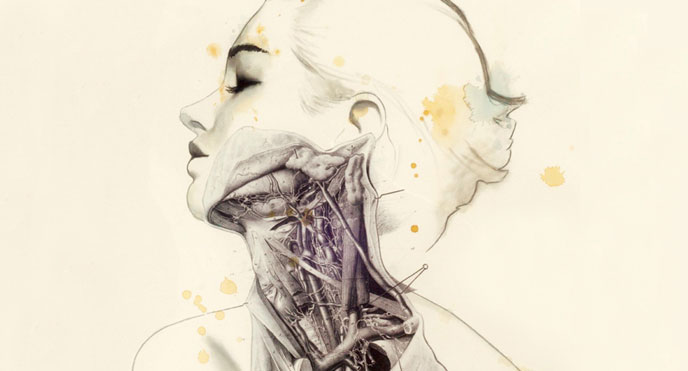Our National Short Story Month celebrations continue with a master of the macabre. “Monument” by Amelia Gray can be found in her latest collection, Gutshot.
opens in a new window |
The townspeople met at the graveyard at the agreed-upon time. They brought bottles of vinegar for the weeds and pails of water and rags and soaps. A gardener hauled in a truck bed of hardy plants, one lady had flowers tucked in a laundry basket, and a few of the men brought shovels to even out the earth around the yard’s only tree. Someone started up a lawnmower.
Without much conversation, they got to work. They scrubbed gravestones until the names gleamed. The lawnmower sputtered to life and its owner began to trace the site’s perimeter. A man gathered faded silk flowers in a trash bag. The children held smaller pails and cups of water and cleaned out the stones’ grooved details with their fingers.
Each person gave their unspoken thoughts of respect to the graves they cleaned. These were the resting places of their friends and neighbors. Even those long dead had left generations in witness. Most worked in silence. An old man took a break from cleaning his wife’s stone to wipe his eyes with a handkerchief. Someone whistled a hymn.
Work around the tree was going well. Its roots had disturbed the ground and the area needed to be smoothed and resodded. An usher at the church swung a shovel full of peat a little farther back than he had intended. The shovel clipped a gravestone and sent a piece of the stone flying into the high grass.
The sound rang out across the field, a light metal ping, and stopped the crowd. People looked to see what happened. A few dropped their things and came closer. Wiping their foreheads on their sleeves, they regarded the stone.
It was the grave of an upstanding member of the community,
a woman who had been well loved when she died. Most of her kin were in attendance, and her young grandchildren played a spirited game of hide-and-seek around the graves. The man who had swung the shovel looked at each of them in turn.
The woman’s eldest son stepped forward to inspect the damage. He ran his finger along the stone at its sheared point. The granite wasn’t very old, but its surface had dulled after years of rain and sun. His mother’s name was still clearly marked, and the grooves were rimmed with grime.
A line of earth clung where the shovel had struck, and the stone that chipped off had given way to the mica sparkling inside. He laid an open palm on the place. The split portion, cool and freshly exposed to the afternoon sun, seemed tender to the touch.
When he lifted his shovel, the crowd took a step back. He swung it like an ax onto the gravestone, landing heavy and breaking off a larger piece. He leaned forward and touched the place again. It was so fresh it looked wet, as if a vein of springwater spread through it. Again he lifted the shovel.
The townspeople stood, watching the man’s destructive work. After a few minutes, one of the women leaned down and put her full weight against a brittle stone. It fell, splitting cleanly in two, and she covered it with fistfuls of earth. An old man took a shovel to his sister’s memorial, lopping off the delicate angel’s head that crowned it. He scrambled after the head, scooped it up, and threw it with surprising strength over the far fence.
The crowd sprang to action. Children gouged limestone with their trowels. Someone went back to his truck for a baseball bat. A woman beat her husband’s stone with her fists until she was pulled away and given a pickax. They worked in this way until nothing remained.
Amelia Gray grew up in Tucson, Arizona. She is the author of four books: AM/PM, Museum of the Weird, (winner of the Ronald Sukenick/American Book Review Innovative Fiction Prize), and Threats (a finalist for the PEN/Faulkner Award for Fiction). She lives in Los Angeles, where she is at work on a novel.
YOU MIGHT ALSO LIKE:
“Date Night,” another story by Amelia Gray
Excerpt: Ugly Girls, by Lindsay Hunter
What, Exactly, Have You Been Doing for the Past 14 Years? by Arthur Bradford

